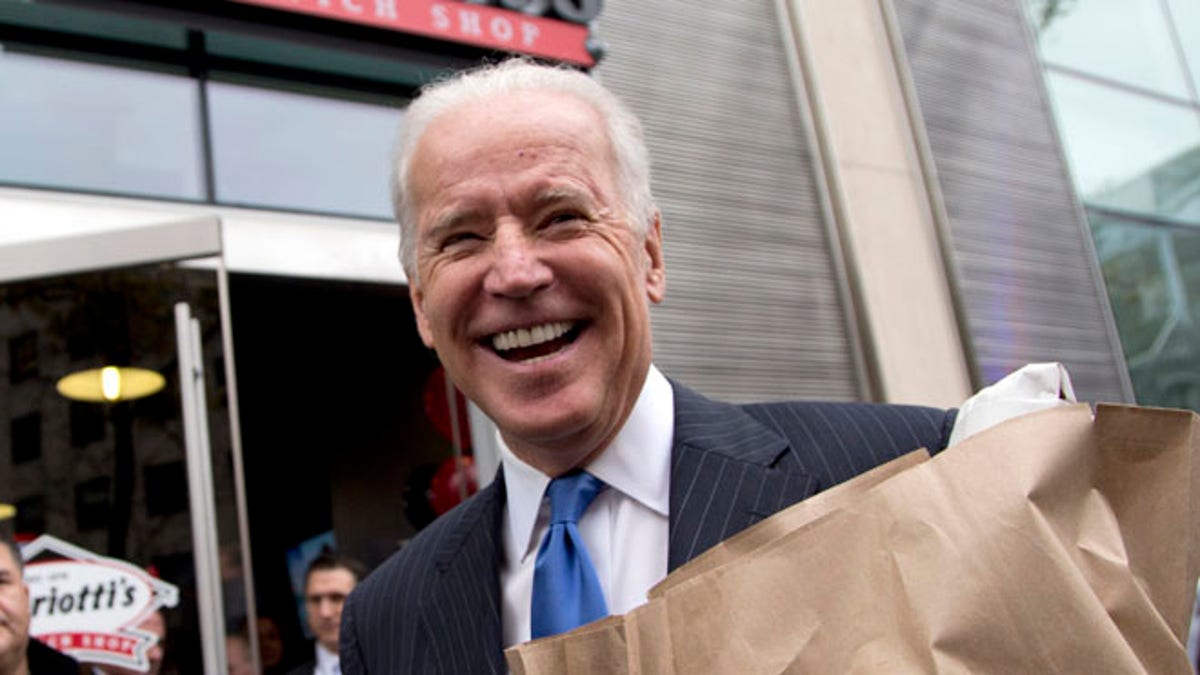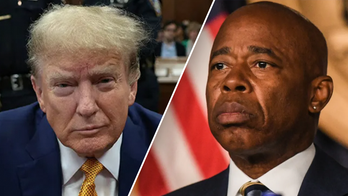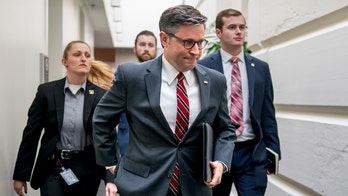
FILE: Nov. 21, 2013: Vice President Biden outside a sandwich shop in Washington, D.C. (AP)
The Obama administration turns its attention next week to Asia with Vice President Biden taking a week-long trip to the region amid China’s renewed claim to a disputed territory and warnings to encroaching planes.
Biden is set to arrive Monday in Japan, then meet with leaders in China and South Korea, to re-establish connections in that region, after months of intense U.S. foreign policy efforts in the Middle East and America trying to help reach a nuclear-freeze deal with Iran.
At the same time, disputes among Asian nations seem to be boiling over, threatening instability in a region that's vital to the U.S. economy.
American allies Japan and South Korea are barely speaking. China is butting heads with its neighbors and with the U.S. about Beijing's new air-defense zone over a group of tiny islands that have exacerbated long-simmering territorial conflicts. The U.S. on Friday advised American carriers to comply with China's demand that it be told of any flights passing through that defense zone.
Early in his presidency, Obama declared the U.S. was "all in" when it came to the Asia-Pacific. His administration pledged to increase its influence, resources and diplomatic outreach in the region, and to bolster the U.S. military footprint so that by 2020, 60 percent of the Navy's warships would be based there, compared with 50 percent now.
The concern was that as China came into its own as a superpower, its sway over other Asian nations would grow, too.
But in Obama's second term, Iran, Syria and Egypt have absorbed the president's attention on foreign policy matters. At home, the administration has been consumed with a health care rollout that's become a major political problem, while intense gridlock in Congress has bogged Obama down in domestic disputes.
Obama had to scrap a much-anticipated trip to Asia in October because the federal government was shut down, leading many in the region to question his priorities.
Obama's national security adviser, Susan Rice, has said the U.S. will keep deepening its commitment to Asia "no matter how many hot spots emerge elsewhere."
But Rep. Steve Chabot, R-Ohio, said he's heard loud concerns as he's traveled the region as the chairman of the House subcommittee dealing with Asia.
"In each country I've gotten this feedback: `When do you think the president is going to put some meat on the bones?"' Chabot said. "It's been mostly just talk, and mostly diplomatic engagement. They want to get beyond just talk."
Biden will meet with Japanese Prime Minister Shinzo Abe before focusing on women's issues with the new U.S. ambassador, Caroline Kennedy. In Beijing, Biden hold talks meet with China's president, Xi Jinping, vice president, Li Yuanchao, and premier, Li Keqiang.
After meeting with South Korean leaders in Seoul, Biden will give a major speech on the U.S.-Korea relationship at Yonsei University and lay a wreath at a cemetery honoring fallen U.S. troops.
The trip comes at a critical time.
The U.S. is trying to complete a major trade agreement by year's end, but it's not certain the deadline with be honored. The Trans-Pacific Partnership involving the U.S., Japan and 10 other nations could clear the way for much greater trade with Asia, in line with Obama's ambitious goal to double U.S. exports by 2015.
Issues of market access, environmental protections and intellectual property remain controversial. It's also unclear whether Congress will approve the pact without making changes, potentially derailing the deal.
Biden's visit comes two weeks after China's leaders outlined a market reform plan that could be the country's most significant economic overhaul in at least two decades. The Communist Party conference marked the unveiling of Xi's vision.
But China's new air defense zone over the East China Sea may overshadow Biden's mission. The administration said Biden would raise the issue directly with Chinese leaders.
China announced last week that all aircraft entering the zone -- a maritime area between China, Taiwan, South Korea and Japan -- must notify Chinese authorities beforehand and that it would take unspecified defensive measures against those that don't comply.
Neighboring countries and the U.S. have said they will not honor the new zone, which is believed aimed at claiming disputed territory, and have said it unnecessarily raises tensions.
China's defense ministry said fighter jets identified and monitored the two U.S. reconnaissance aircraft and a mix of 10 Japanese early warning, reconnaissance and fighter planes during their flights through the zone early Friday.
The U.S. has tried to stay out of such territorial disputes, but treaty obligations to Japan sometimes get in the way. As China, Japan and others adopt increasingly aggressive military stances, the U.S. worries about an increased likelihood of a mishap spiraling quickly out of control.
In South Korea, the nuclear threat from an unpredictable North Korea is a chief item on Biden's agenda.
The deal the U.S. helped strike with Iran to temporarily freeze its nuclear program is a stark reminder of the impasse in negotiations with North Korea. Unlike Iran, North Korea is believed to already have a nuclear bomb, and there's worrying evidence it is pressing ahead with weapons development.
Meanwhile, state media in the North claimed Saturday that an elderly U.S. tourist detained for more than a month has apologized for alleged crimes during the Korean War and for "hostile acts" against the state during a recent trip. The apology couldn't be independently confirmed.
Biden may try to play mediator between South Korea and Japan, whose long-troubled relations are souring over painful legacies from Japanese colonialism and World War II. Nationalist sentiments in Tokyo have been pitted against Seoul's desire for more public remorse from Japan over its use of Korean sex slaves during the war, and other injustices.
The Associated Press contributed to this story.




